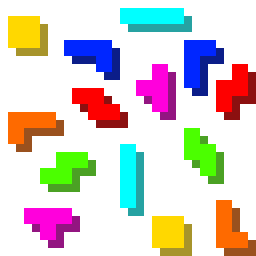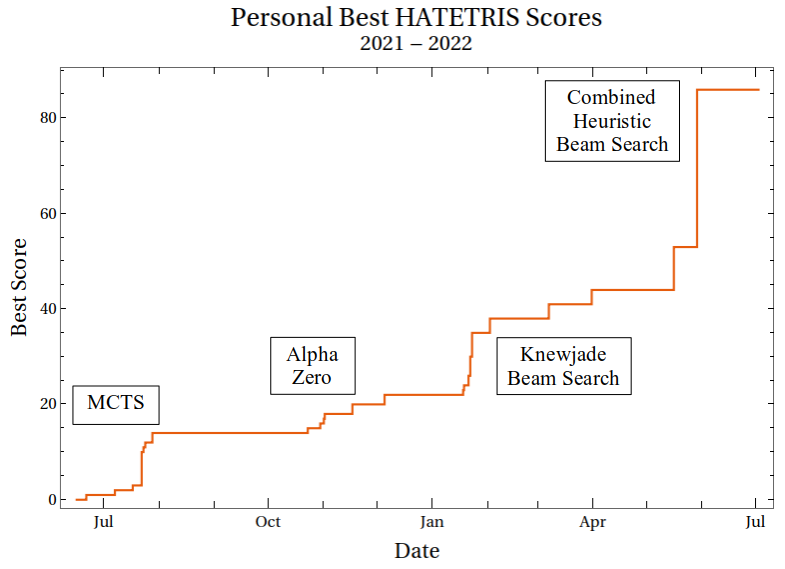Let’s start by getting you up to speed. It’s one of the most well-known video games in the whole world at this point, but people who’ve lived under rocks might not know about Tetris, the block falling puzzle game created in Russia and popularized first by Spectrum Holobyte, then by Nintendo. Favorite game of both diehard Japanese arcade players and Steve Wozniak.

While the increasing speed and rising pile are what directly end games, a lot of the difficulty of Tetris comes from the pieces that are generated by the software. Famously, it’s known that completely random Tetris is doomed to failure, that it’s been mathematically proven that there exist sequences of blocks that are unsolvable, but aside from that nearly all sequences are survivable.
One thing that can help a player survive is the sequence of the blocks that are generated by the game, which is really getting into the weeds. A consistently varied collection of pieces helps out a lot. Early versions of Tetris just picked any block, and sequences of the same piece could easily happen. Recent years have seen an effort by the official stewards of the game, The Tetris Company, to standardize it, and one of their edicts is to use a “bag” system, where the game tries to ensure that all pieces will appear over a short period of time, to try to keep the game fair while still acceptably random-seeming.
At the other end of the field, Hatetris is a fan-made form of Tetris that seeks to increase difficulty by picking the least-survivable block, the one least able to fit in with the rest of the bit. (It’s not the only such version, another is Bastet.) Casual players usually find it impossible more than one or two lines.

Image credit: https://hallofdreams.org/posts/hatetris/
Yet recently there has been surprising progress in surviving this worst-universe version Tetris. Getting the World Record in HATETRIS explains the work done to maximize scores in this version; the current record is 86 lines. Helping their work is that the Hatetris isn’t random at all, but actually completely deterministic. The piece that must stack the bin the highest is always chosen, so it can be predicted and, to some extent, accounted for.
And with an ocean of computing power out there now, sloshing about over everything, it was probably only a matter of time that someone would look into optimizing adverse Tetris. What, I ask you with growing concern, is next?
